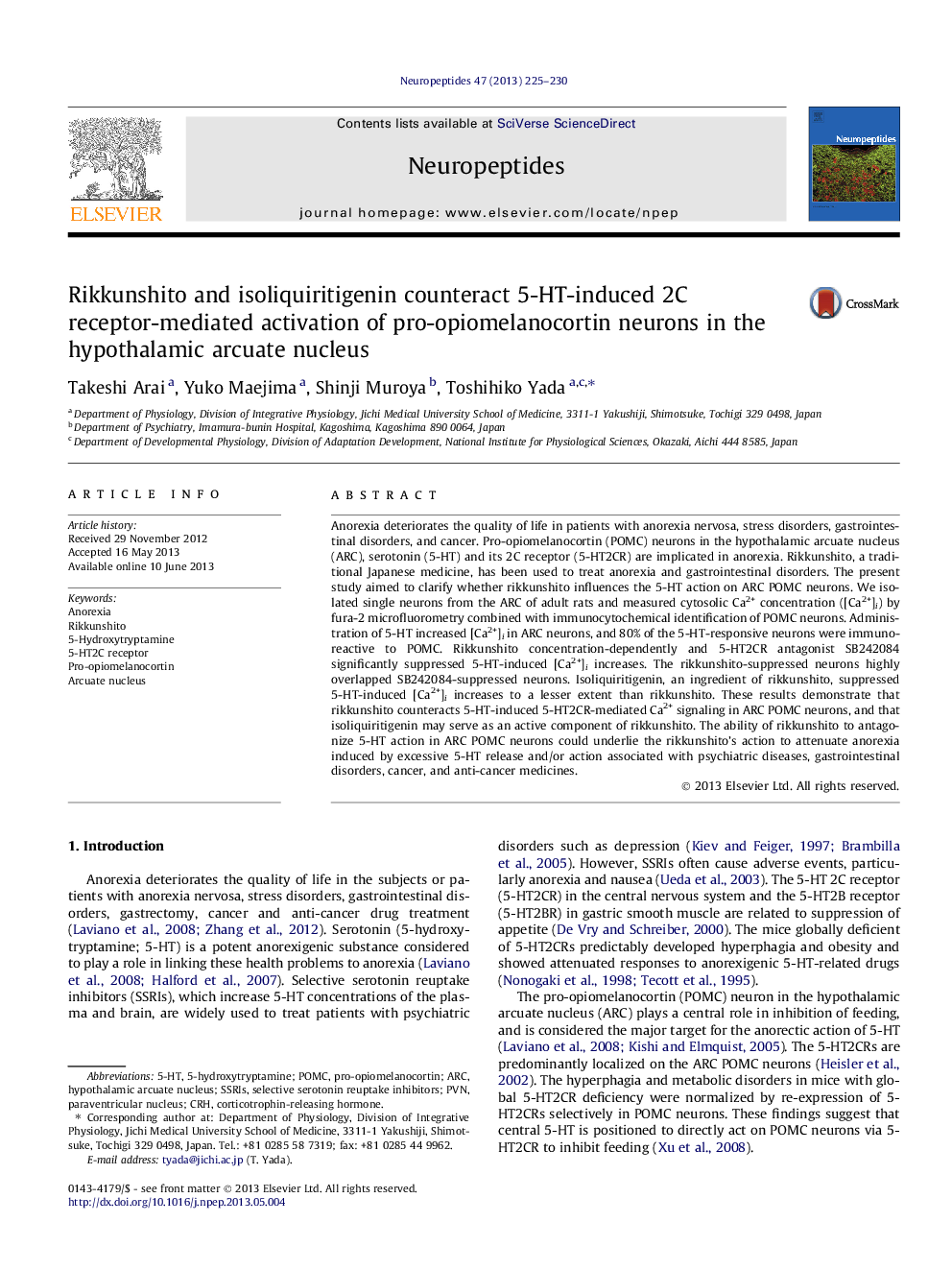| Article ID | Journal | Published Year | Pages | File Type |
|---|---|---|---|---|
| 2808100 | Neuropeptides | 2013 | 6 Pages |
Anorexia deteriorates the quality of life in patients with anorexia nervosa, stress disorders, gastrointestinal disorders, and cancer. Pro-opiomelanocortin (POMC) neurons in the hypothalamic arcuate nucleus (ARC), serotonin (5-HT) and its 2C receptor (5-HT2CR) are implicated in anorexia. Rikkunshito, a traditional Japanese medicine, has been used to treat anorexia and gastrointestinal disorders. The present study aimed to clarify whether rikkunshito influences the 5-HT action on ARC POMC neurons. We isolated single neurons from the ARC of adult rats and measured cytosolic Ca2+ concentration ([Ca2+]i) by fura-2 microfluorometry combined with immunocytochemical identification of POMC neurons. Administration of 5-HT increased [Ca2+]i in ARC neurons, and 80% of the 5-HT-responsive neurons were immunoreactive to POMC. Rikkunshito concentration-dependently and 5-HT2CR antagonist SB242084 significantly suppressed 5-HT-induced [Ca2+]i increases. The rikkunshito-suppressed neurons highly overlapped SB242084-suppressed neurons. Isoliquiritigenin, an ingredient of rikkunshito, suppressed 5-HT-induced [Ca2+]i increases to a lesser extent than rikkunshito. These results demonstrate that rikkunshito counteracts 5-HT-induced 5-HT2CR-mediated Ca2+ signaling in ARC POMC neurons, and that isoliquiritigenin may serve as an active component of rikkunshito. The ability of rikkunshito to antagonize 5-HT action in ARC POMC neurons could underlie the rikkunshito’s action to attenuate anorexia induced by excessive 5-HT release and/or action associated with psychiatric diseases, gastrointestinal disorders, cancer, and anti-cancer medicines.
